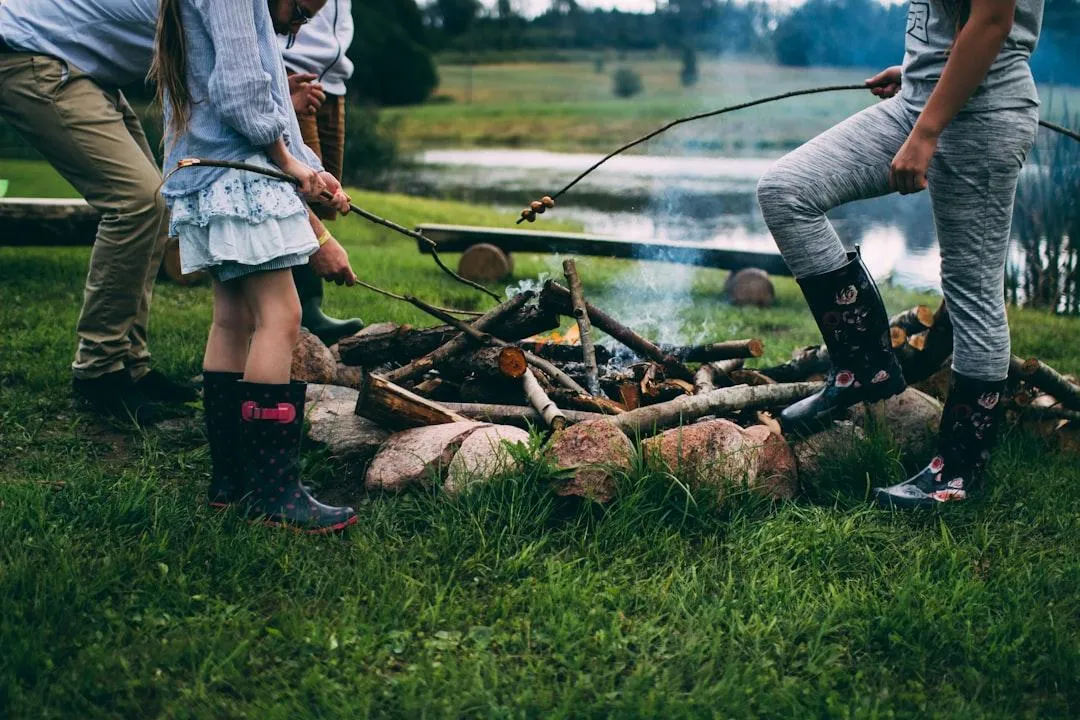
HOMESTEAD FANATIC BLOG
Discover amazing destinations, plan your perfect trip, and book unforgettable experiences. Our travel website makes traveling around the world easy, enjoyable, and hassle-free.
EXPLORE GREAT PLACES
THE HOMESTEAD BLOG

How to Make Your Own Sleep-Enhancing Essential Oils at Home
Introduction
Struggling with sleepless nights? You're not alone. Millions of people battle with insomnia or poor sleep quality. Fortunately, sleep-enhancing essential oils can be a natural and effective solution. Instead of purchasing expensive store-bought blends, why not create your own? In this guide, you'll learn how to make sleep-inducing essential oils at home using natural ingredients. We’ll cover the best essential oils for sleep, how to blend them, and the best methods for application.
Why Use Essential Oils for Better Sleep?
Essential oils have been used for centuries for their calming and therapeutic properties. Some essential oils contain compounds that promote relaxation, reduce anxiety, and improve sleep quality. Here are some of their benefits:
Natural remedy for sleep disorders
Reduces stress and anxiety
Promotes deep relaxation
Improves sleep quality without side effects
Best Essential Oils for Sleep
Before diving into the blending process, let’s explore the most effective essential oils for better sleep:
Lavender Oil – One of the most well-known calming essential oils, lavender helps reduce stress and promote deep sleep.
Chamomile Oil – Known for its mild sedative properties, chamomile is perfect for nighttime relaxation.
Sandalwood Oil – Helps lower heart rate and relax the nervous system.
Bergamot Oil – Unlike other citrus oils, bergamot has calming effects that aid in stress relief and relaxation.
Ylang Ylang Oil – Helps lower blood pressure and promotes a sense of calm.
Cedarwood Oil – Contains compounds that stimulate melatonin production.
Vetiver Oil – Known for its grounding and soothing properties.
How to Make Your Own Sleep-Enhancing Essential Oil Blend
Ingredients:
To create an effective homemade essential oil blend for sleep, you’ll need:
10 drops of Lavender Oil
5 drops of Chamomile Oil
5 drops of Cedarwood Oil
4 drops of Bergamot Oil
4 drops of Ylang Ylang Oil
2 tablespoons of carrier oil (such as coconut, almond, or jojoba oil)
A dark glass dropper bottle
Instructions:
Choose a Carrier Oil: Since essential oils are highly concentrated, they need to be diluted with a carrier oil.
Mix the Essential Oils: In a small bowl, combine the essential oils listed above.
Dilute the Blend: Add the carrier oil and mix well.
Store Properly: Transfer the blend into a dark glass bottle to preserve its potency.
Shake Before Use: Always shake the bottle before applying the oil.
Application Methods for Maximum Effectiveness
Once you’ve made your DIY sleep-enhancing essential oil blend, you can use it in several ways:
1. Aromatherapy Diffuser
Add 5-10 drops of your essential oil blend into a diffuser and let the soothing aroma fill your bedroom before bedtime.
2. Topical Application
Apply a few drops to your pulse points, such as wrists, temples, and neck. Be sure to dilute essential oils with a carrier oil to avoid skin irritation.
3. Pillow Spray
Mix 10 drops of your blend with ½ cup of distilled water and pour into a spray bottle. Mist your pillow lightly before sleep.
4. Warm Bath Soak
Add 10 drops of your blend to a warm bath for a calming nighttime ritual.
5. Bedtime Massage
Mix with a carrier oil and gently massage onto the soles of your feet or shoulders to promote deep relaxation.
Tips for Getting the Best Results
Use high-quality essential oils – Look for 100% pure, therapeutic-grade essential oils for the best effects.
Be consistent – Use your blend every night as part of your bedtime routine.
Create a sleep-friendly environment – Keep your bedroom cool, dark, and quiet to enhance the benefits of your essential oil blend.
Avoid blue light exposure before bed – Turn off electronic devices at least an hour before sleep to improve melatonin production.
Frequently Asked Questions
Q: How long does it take for essential oils to work for sleep?
A: Some people feel the effects immediately, while others may need a few nights to notice improvement. Consistency is key.
Q: Can I customize my blend?
A: Absolutely! Feel free to experiment with different sleep-promoting essential oils to find the perfect combination for your needs.
Q: Are there any side effects?
A: While essential oils are natural, some people may have allergic reactions. Always do a patch test before applying essential oils to your skin.
Conclusion
Making your own sleep-enhancing essential oils at home is an easy, affordable, and natural way to improve sleep quality. By choosing the right essential oils and application methods, you can create a personalized sleep aid that works for you. Try different blends and find what works best for your unique sleep needs.

POPULAR QUESTIONS
Asked Questions ?
Many people interested in homesteading ask about how to get started, what animals and crops are best for beginners, and ways to generate income from their land. Food preservation techniques are also a common topic, as self-sufficiency plays a key role in homesteading success. These FAQs provide a helpful starting point for anyone looking to embrace a more independent and sustainable lifestyle.
What is homesteading?
Homesteading is a lifestyle focused on self-sufficiency, which often includes growing your own food, raising livestock, preserving food, and using sustainable practices to reduce reliance on modern systems.
How do I start homesteading with little or no land?
Even if you don’t have a large property, you can start small by container gardening, keeping backyard chickens (if permitted), composting, and learning essential skills like food preservation and DIY projects.
What animals are best for a beginner homesteader?
Chickens, rabbits, and ducks are great starter livestock. They require less space, are relatively easy to care for, and provide eggs or meat while helping with pest control.
How can I make money from homesteading?
Many homesteaders generate income by selling eggs, honey, homemade goods, fresh produce, handmade crafts, or even offering homestead-related workshops.
What are the best crops for beginner homesteaders?
Easy-to-grow crops include tomatoes, zucchini, lettuce, radishes, and herbs like basil and mint. These require minimal maintenance and provide a great starting point for new homesteaders.
How do I preserve food for long-term storage?
Canning, dehydrating, freezing, and fermenting are all effective ways to preserve food. Each method has its benefits, depending on the type of food and your available storage space.

Your Gateway to Global Adventures Await Here.
Quick Links
Home
About Us
Services
Blog
Quick Links
Email:
